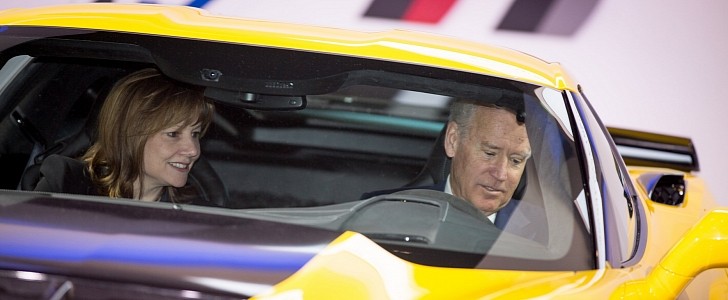Joe Biden has a level of Congress support few other presidents could brag about: both the Senate and the House of Representatives have a Democrat majority. That does not mean that approving the Build Back Better Act (H.R. 5376) will be easy: internal and foreign opposition will put Biden’s support to the test.
Internally, multiple automakers oppose the $4,500 additional federal tax incentive for electric vehicles built by unionized factories. Tesla has been very vocal about it and was joined by a dozen foreign automakers urging the two senates from California to oppose any rules “that do not treat California’s auto workers as equal to every other American auto worker."
Automakers in other states manufacturing cars in non-unionized factories may ask their senates and representatives the same thing. The Republican governors of 11 states sent a letter to Congress stating that such a measure would be discriminatory against workers that decided not to unionize. And this is a crucial point to consider.
Unionizing is voluntary. If workers decided not to join a union, that decision should not become a competitive hindrance against them. If the vehicles they produce do not sell well due to fewer incentives, their jobs are at stake. The $4,500 tax incentive may make unionizing mandatory, and recent UAW corruption scandals do not help. At the same time, unorganized workers have less bargain power to demand better working conditions. That puts them between a rock and a hard place.
However, the main issue with the plan may come from abroad. Offering a tax credit for cars made exclusively in the U.S. will lead to international questioning about the legislation, which will undoubtedly be framed as protectionist. According to Reuters, Canada and Mexico have already said that the $4,500 EV tax incentive may hurt the USMCA (Unites States-Mexico-Canada) trade pact.
Expect disputes to hit the WTO (World Trade Organization) coming from other countries, especially South Korea and Germany. China may eventually join them if Chinese companies decide to sell their EVs in the U.S. as well. In short, Biden might be able to approve the tax incentive connected to unions, but it could cause more problems than it is designed to solve.
Automakers in other states manufacturing cars in non-unionized factories may ask their senates and representatives the same thing. The Republican governors of 11 states sent a letter to Congress stating that such a measure would be discriminatory against workers that decided not to unionize. And this is a crucial point to consider.
Unionizing is voluntary. If workers decided not to join a union, that decision should not become a competitive hindrance against them. If the vehicles they produce do not sell well due to fewer incentives, their jobs are at stake. The $4,500 tax incentive may make unionizing mandatory, and recent UAW corruption scandals do not help. At the same time, unorganized workers have less bargain power to demand better working conditions. That puts them between a rock and a hard place.
However, the main issue with the plan may come from abroad. Offering a tax credit for cars made exclusively in the U.S. will lead to international questioning about the legislation, which will undoubtedly be framed as protectionist. According to Reuters, Canada and Mexico have already said that the $4,500 EV tax incentive may hurt the USMCA (Unites States-Mexico-Canada) trade pact.
Expect disputes to hit the WTO (World Trade Organization) coming from other countries, especially South Korea and Germany. China may eventually join them if Chinese companies decide to sell their EVs in the U.S. as well. In short, Biden might be able to approve the tax incentive connected to unions, but it could cause more problems than it is designed to solve.







